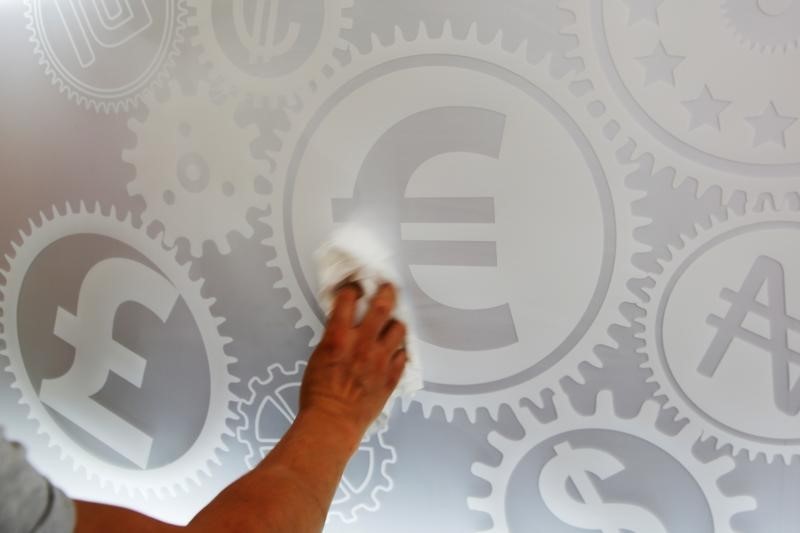* Virus spreading, but WHO supports China's response
* China services data helps offset concerns of economic
slowdown
* Aussie halts slide, but set for worst month in almost 4
years
* Authorities investigate pound jump ahead of BOE decision
* Graphic: World FX rates in 2020 https://tmsnrt.rs/2RBWI5E
By Tom Westbrook
SINGAPORE, Jan 31 (Reuters) - Asian currencies arrested
their slide on Friday as confidence from the World Health
Organization in China's response to a new virus and upbeat data
from the world's second biggest economy tempered worries over a
jump in new infections.
The WHO said late Thursday the outbreak was a global
emergency, but China's response so far will "reverse the tide"
of the virus' spread.
Together with official data showing Chinese services
activity picking up this month, that was enough to pause selling
from investors who are waiting for more information about the
virus to judge its likely human and economic costs.
The death toll in China has now reached 213 and the number
of cases is 9,692 - up from 7,711 a day ago.
The Australian and New Zealand dollars, which dipped on the
news of rising deaths, recovered after the services data to hold
steady. China's yuan CNH= was little moved at 6.9793 per
dollar.
The Antipodean currencies have been pounded in recent weeks
as investors pour out of assets exposed to the virus' fallout in
China.
The Aussie is 4.1% weaker this month and, if the selldown
does not reverse, is headed for its worst month since May 2016.
"Aussie and kiwi are what I've called the whipping boys, if
you like, for expressing concern about the spreading of the
virus and its potential global economic ramifications," said Ray
Attrill, Head of FX Strategy at National Australia Bank.
Some 60 million people in the epicentre of the outbreak,
Hubei province, are living under virtual lockdown. Several
global airlines have stopped flying to mainland China and
economists are slashing their forecasts for Chinese growth.
The yen and dollar have been beneficiaries of the resulting
flight to safety.
The yen JPY=EBS was steady at 109.00 per dollar and the
greenback stable at $1.1030 per euro EUR=EBS in morning trade.
Against the Australian dollar, the yen has added 3.2% in the
10 days since concerns about the virus began roiling markets
AUDJPY= . Against the Korean won, the yen has gained nearly 4%
KRWJPY=R .
In Thailand - heavily exposed to Chinese tourism - the
baht, which has stubbornly resisted months of jawboning and
policy easing from the central bank, has shed 4% for the month.
"The problem for markets is the inability to price risk
because lack of certainty around this," said Chris Weston, Head
of Research at Melbourne brokerage Pepperstone.
"We're probably going to hear a much clearer definition
about how this is contained somewhere between the 3rd and 8th of
February."
Separately, relief the Bank of England held rates steady
sent the British pound GBP= up 0.7% to a week high. Britain's
market watchdog, however, is investigating the move because it
began just before the bank's announcement.
